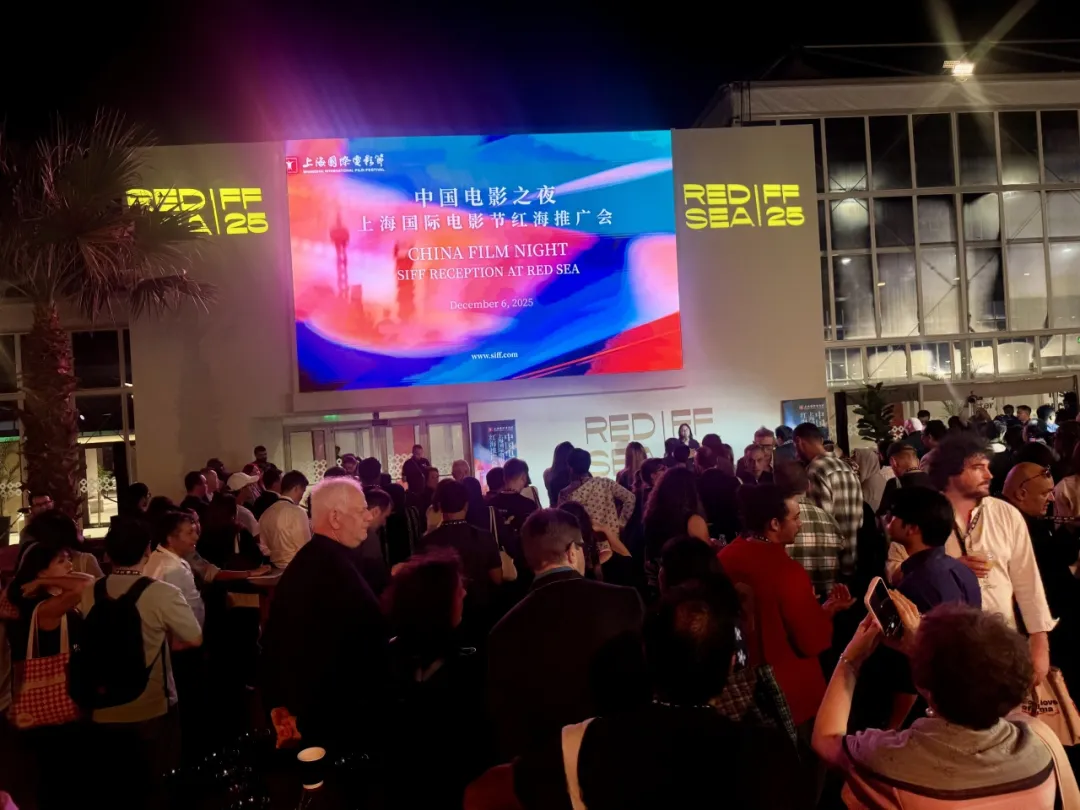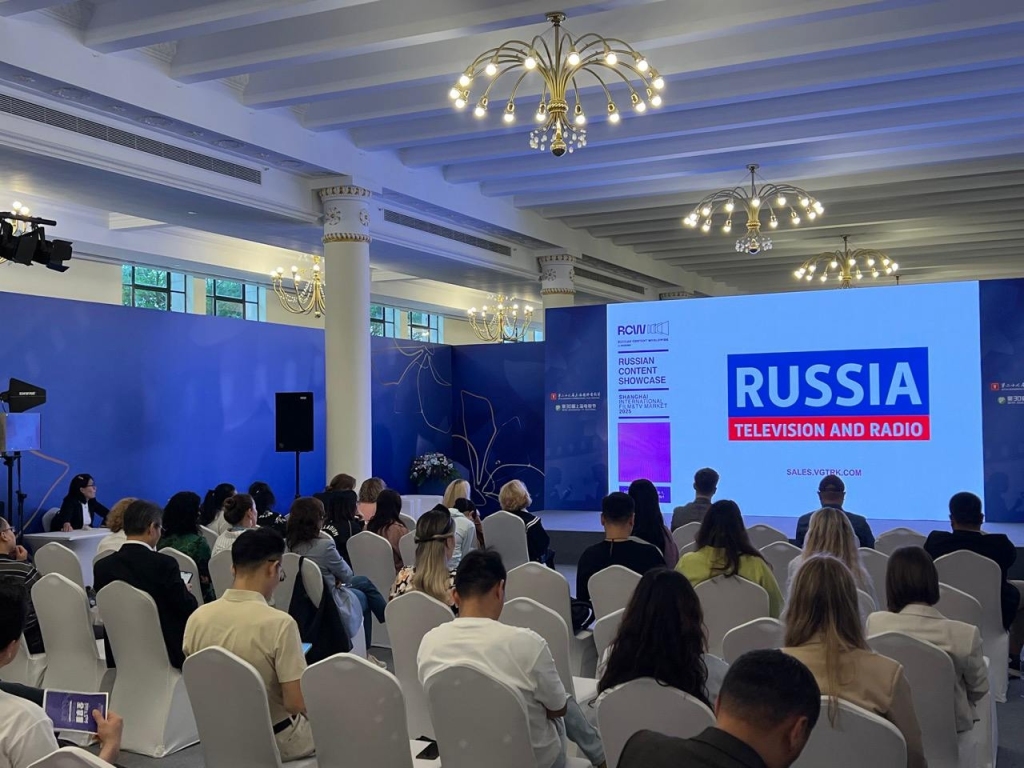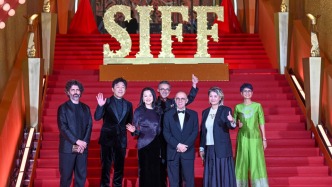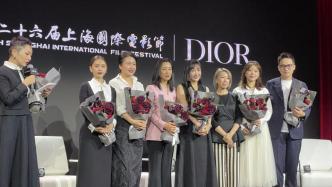
On June 14, the opening day of the Shanghai International Film Festival, the first Golden Goblet Forum "Her Film Era - Embrace and Reshape" was held at the Victory Cinema. Many outstanding directors, screenwriters and producers in the film and television industry, including Chen Zhixi, Chairman and President of Wanda Film, Teng Congcong, the director who shot the touching TV series "My Altay" this year, Qin Haiyan, who has written works such as "Assassination of Novelist" and "July and Ansheng", Wang Ziwen, an actress who has contributed many classic roles, and Su Biao, a male director and screenwriter who has written "Keep You Safe" and "Warm", focused on women's issues in movies and discussed their experiences in film and television creation, their real feelings and the future they want to reshape and explore.
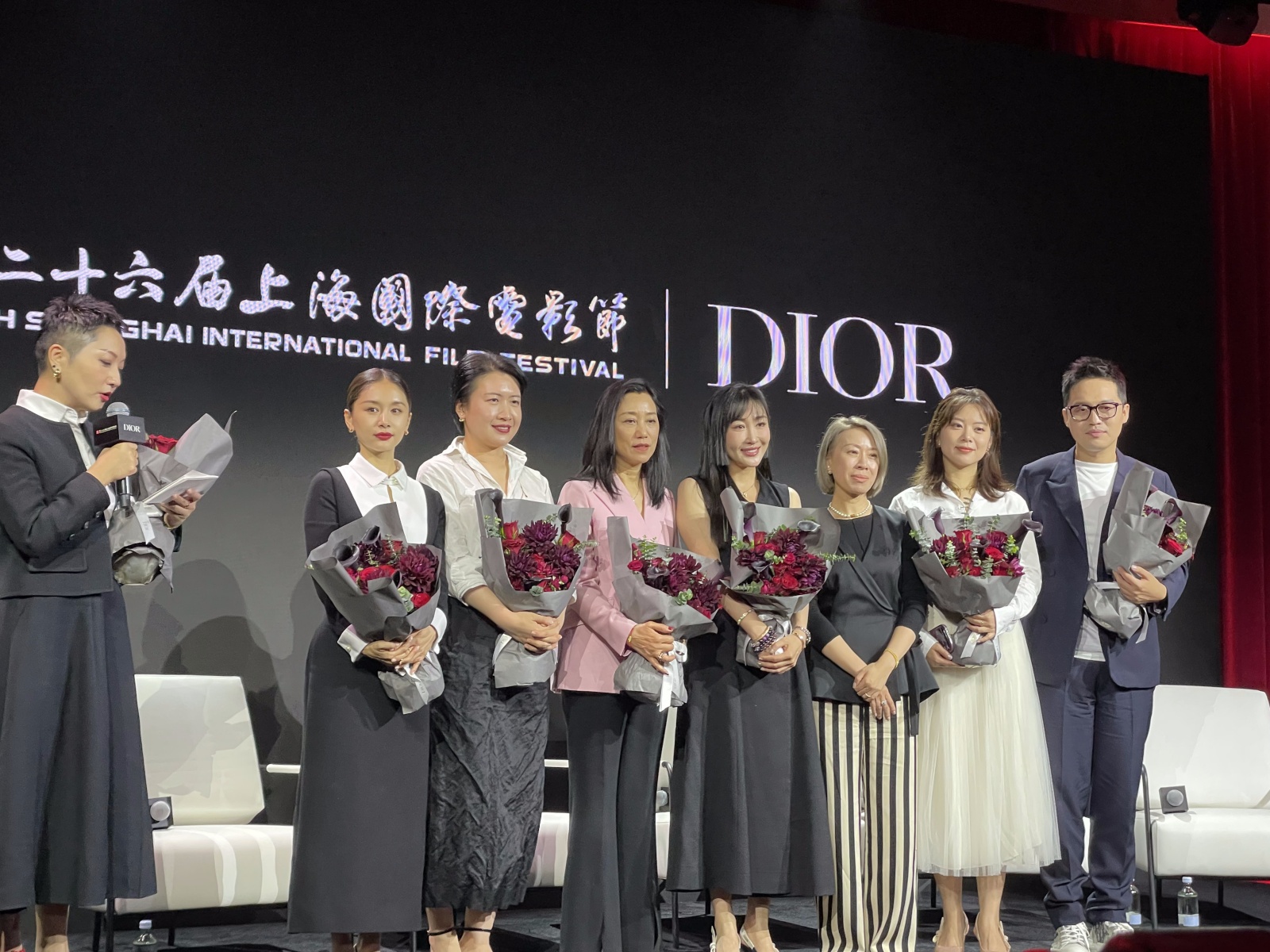
Group photo of forum guests
As the new helmsman of Wanda Pictures, Chen Zhixi shared her thoughts and process along the way. Looking back, she was admitted to the acting department with a passion for the film and television industry, but soon she felt that she could not make it on this road. "First of all, I am not photogenic at all. Secondly, I am a technical actor and lack emotional instincts."
She clearly recognized who she was, but she was still passionate about film and television creation, so she resolutely stepped back and learned to become a producer. Chen Zhixi concluded that women should embrace their true selves, that is, their imperfect selves, so that they can find a track that suits them. "The premise for success is to keep working hard and find a track that suits you."
As a woman, Chen Zhixi has a unique feeling for the film industry, which includes rational thinking and emotional touch. For example, Chen Zhixi has discovered and helped many actors who have transformed into directors, including Jia Ling, Xu Zheng, Dapeng and others. She believes that actors who turn into directors have great innate advantages, even more than screenwriters.
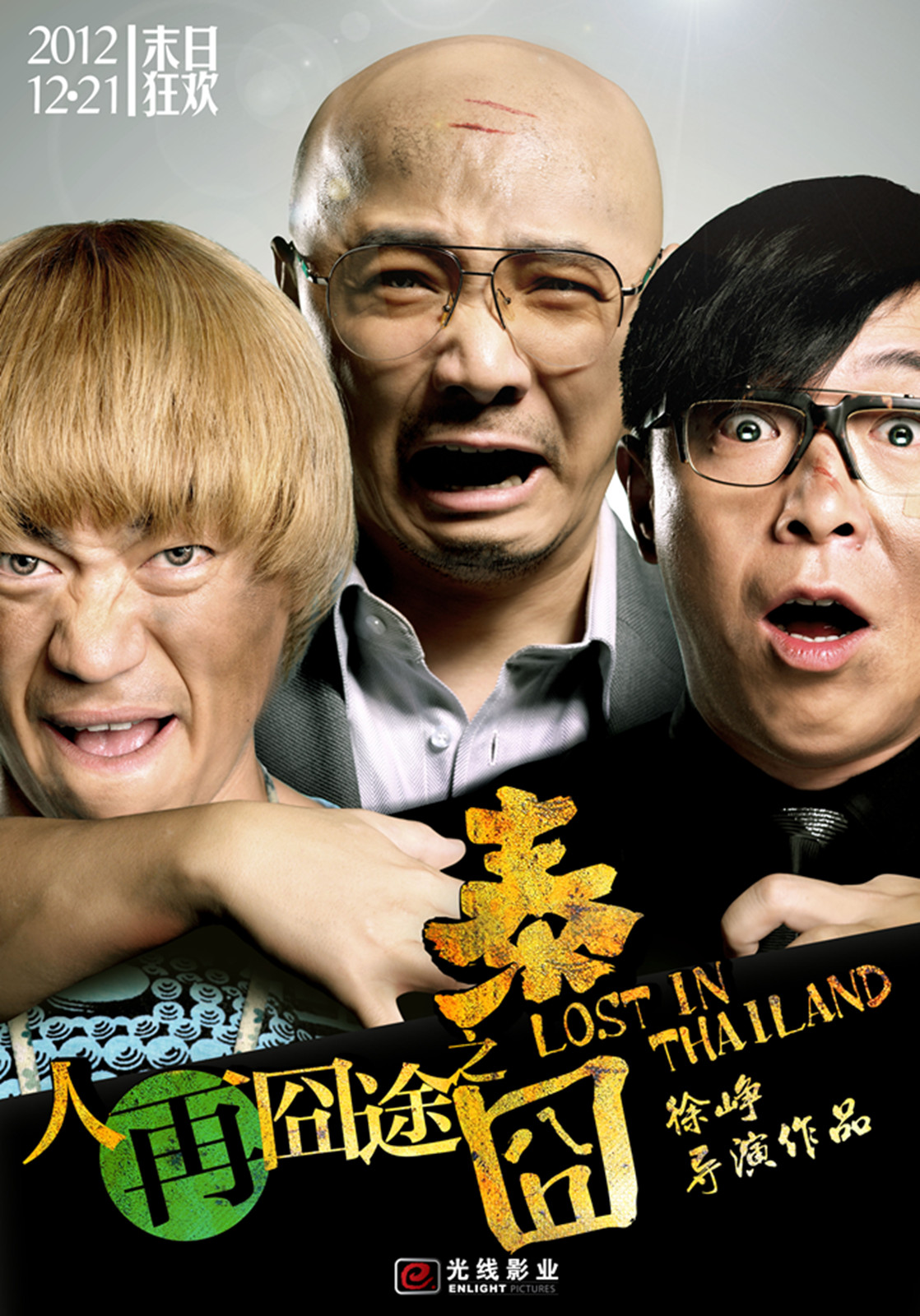
Poster of Lost in Thailand
In 2012, she and Xu Zheng collaborated on Lost in Thailand, which opened the era of billion-dollar box office for Chinese films. Her first encounter with Xu Zheng dates back to 2009, when they collaborated on Li Wei: Official 3. "On the set, he was like a director, adjusting the lines and scheduling the shots. I told him that he could be a director, and he said that he could be a producer since he was so organized."
Chen Zhixi suggested that from the perspective of commerciality and entertainment, audiences want to see good stories and good performances, so actors have a unique advantage. "He can always find a good script among so many scripts, otherwise he would not be a good actor. He has the ability to screen scripts." In addition, she believes that actors' transformation into directors is conducive to bringing all performances to the same level and preventing the film from feeling patchwork.
These are rational thoughts, but she also believes in her emotional intuition. Chen Zhixi talked about how she really likes to work with new directors. Generally, before working together, she has to talk many times to see their personalities and whether their values are compatible. But the most important thing is to see if the director has a firm and universal expression in his heart, "even if not many people can empathize with it." "My Altay" is the best example. Director Teng Congcong had a clear expression in his heart, so Chen Zhixi let Teng Congcong shoot it without interfering too much in the creative aspect. "Movies should let a hundred flowers bloom, and every creator should have his own expression."
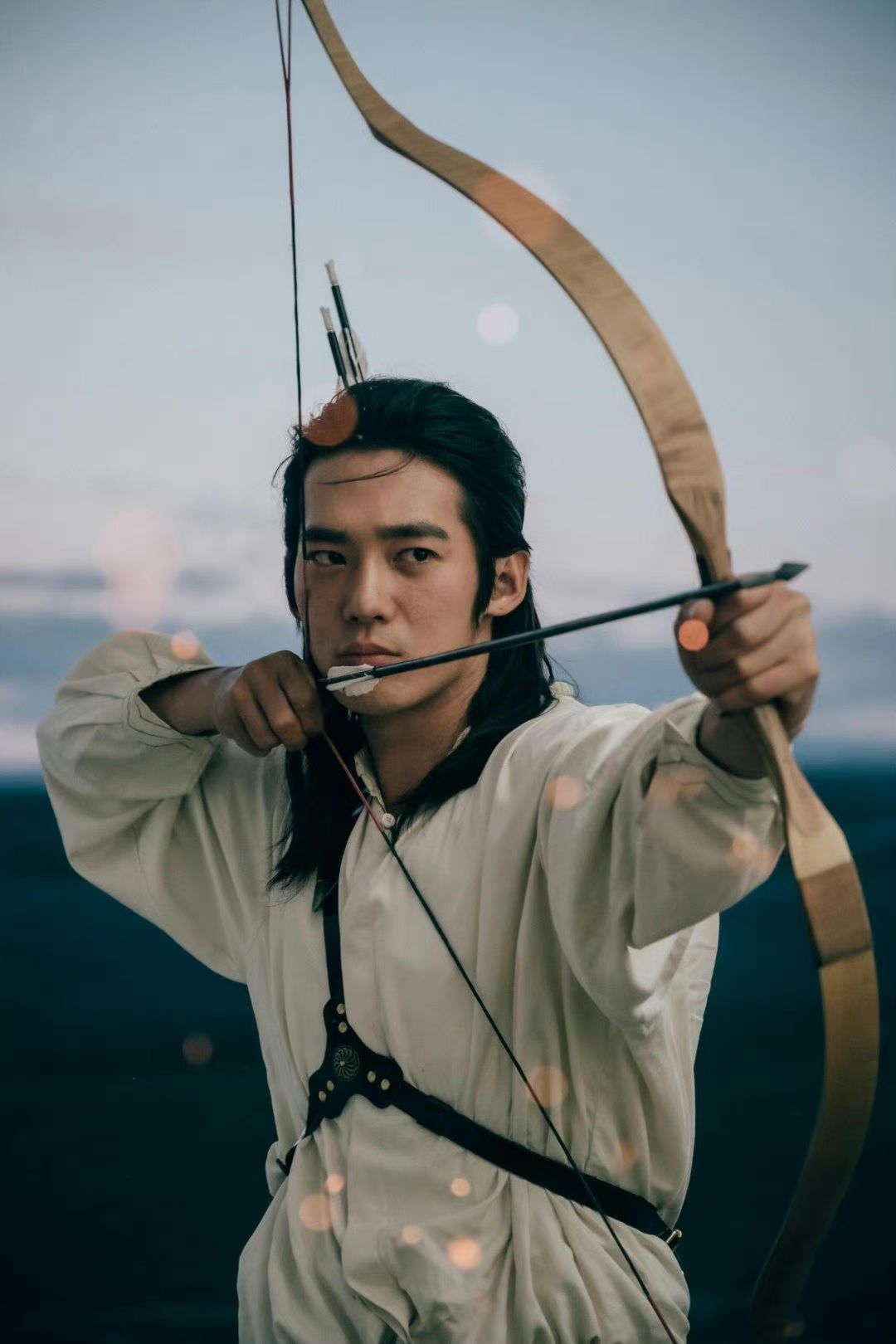
Stills from My Altay
In fact, Chen Zhixi and Teng Congcong have established trust since "Send Me to the Clouds", and "My Altay" did not disappoint the trust. Teng Congcong showed the simple and natural ethnic customs of the Altay region, as well as the interesting and generous group of women there in the series.
Compared with Chen Zhixi's completely rational acceptance of himself, Teng Congcong joked that he was not a person who particularly "embraced" himself. "I was fighting with myself every day. I fought in the morning and reconciled in the evening. People who are engaged in creation often do this when writing scripts. It may be difficult to be completely peaceful and accept yourself. Every day I was caught between left and right to find what I wanted, just like what was shown in "My Altay".
Teng Congcong also admitted that "My Altay" was a risky attempt. In a secular sense, it is not a project that can be considered profitable, but the film and television industry must be linked to profits. She firmly believes that people can always find a path that suits them, and the same is true for film and television works. "Now its success has further proved that considering what the market likes will never please others. (Even) Spielberg will not try to please all audiences. This process is also my search for my own style. My audience group is small, so I shoot low-budget films."
Rather than embracing herself, Teng Congcong wants to express the search for herself. In addition to searching for herself, many creative inspirations come from observing and discovering the shining women around her, which created the vivid female group portraits in "My Altay".
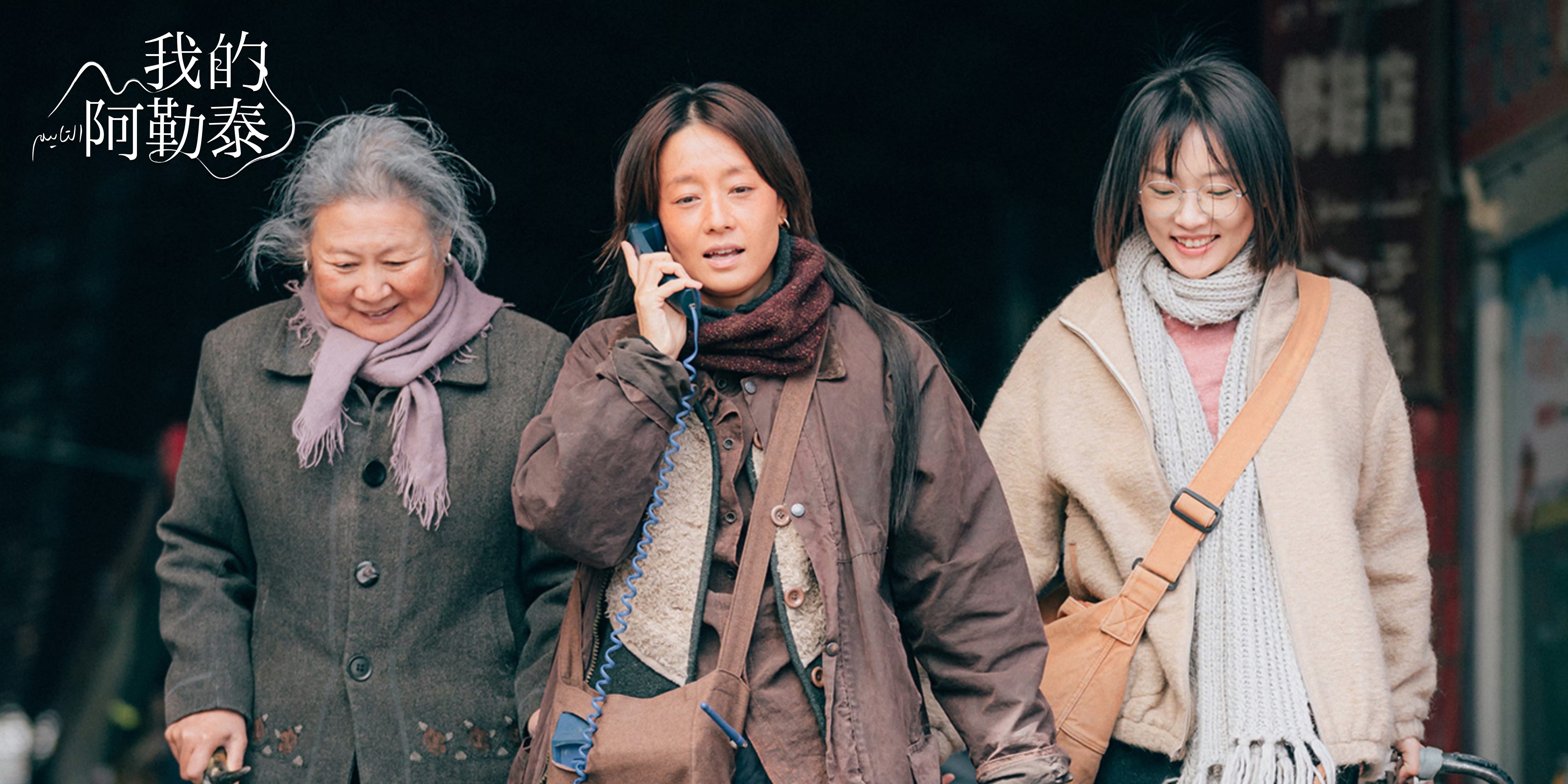
Stills from My Altay
"For example, when I was collecting folk songs in Altay, I saw many women there. They also had unsatisfactory lives, but they were able to resolve them, which made me feel that some of the entanglements in my profession were actually unnecessary. In addition, every time I met Chen Zhixi, she dressed herself up beautifully, and I went there in jeans and slippers. I wondered why I was living such a miserable life, hahaha, I could also change it. There are many outstanding women in my life, so I can easily capture them when I create. The sad background belongs to me, but all the positive things belong to the women around me."
Compared to the word "reshaping", Teng Congcong prefers to explore. The success of "My Altay" made her unexpected that she could "connect" with so many people. "I feel like I can connect with more universal people." Therefore, after this, she said that she might become more commercialized, wanting to capture more audiences, connect with more people, and explore her own boundaries.
"I will go towards whatever life throws at me," said Qin Haiyan, a former screenwriter who directed the female-themed film "I Went Through the Storm" last year. She lamented that as a woman, balancing family and career is a difficult task. She chose to be a screenwriter because she can take care of her family. This is also her "embrace" of herself in her creation - entering life and feeling those resonances, such as those female friends with strong abilities. "The career-oriented women around me are all ordering groceries while attending meetings. They are a beam of light that supports many families."
There are also women who are experiencing difficulties. Before filming "I Got Through the Storm", Qin Haiyan interviewed many full-time mothers. "They do what they should do 24 hours a day, but they don't get paid." She admitted that the creative process is an embrace of women's lives, but it also contains "reshaping". For example, "I Got Through the Storm" is a movie about domestic violence. One year after its release, she received a private message from a woman. "She said she was a victim of domestic violence. She wanted to give up the relationship, but after watching the movie, she decided to keep working hard and contact the rescue organization."
But Qin Haiyan also said that this "reshaping" does not mean resistance to intimate relationships. She recalled that when the movie was released, many young girls said that they didn't want to get married after watching it, but what she actually wanted to express was not this, but "intimate relationships are a kind of practice, and we must embrace life warmly."
Wang Ziwen, who once thought she was very strong, said that she realized she had to reconcile with herself since last year. "Only by facing myself can I give a good performance. Not long ago, I discovered that I was timid and inferior. This is a process of embracing myself and a path of growth." She mentioned that in her new work "A Cloud Like You", she tried to forget about acting, throw away her skills, and adjusted for a long time. It was another way of "reshaping" herself and she had new feelings.
As the only male guest at the scene, Su Biao, the screenwriter of "Hot", focused more on the "reshaping" that creators can pursue in the film industry. "My feeling is that we should shoot more Chinese stories." "The courage to express is very precious, such as what the male protagonist thinks and what his dilemma is. The same is true for women's issues. Asian women have their own attitudes, and the problems of women in different countries are different. I hope to pay more attention to myself, have more national genes, and pay attention to who we are."
Talking about the "reshaping" of the film industry, Chen Zhixi mentioned that because her identity changed from a producer to a person in charge of the film industry, she did have more thoughts. In the past, she only cared about competing films in the same period, but now she cares about the overall film market and how much content can be presented to the audience in the entire film industry. She observed that before the epidemic, the film industry was basically on an upward trend. One of the important reasons for the poor state of the industry in the past two years is the change in young people's viewing habits. The number of moviegoers under the age of 18 is declining. Among all age groups, only the number of audiences over 35 years old is increasing, which means that domestic films have completely entered the holiday season. This is because audiences over 35 years old had the habit of watching movies when they were young, and today's young people no longer have the habit of going to the cinema. The "reshaping" of the future that she can imagine may be to completely transform the cinema, which was once an accessory to a shopping mall, into a cultural and fashion scene to attract young people to the cinema.
